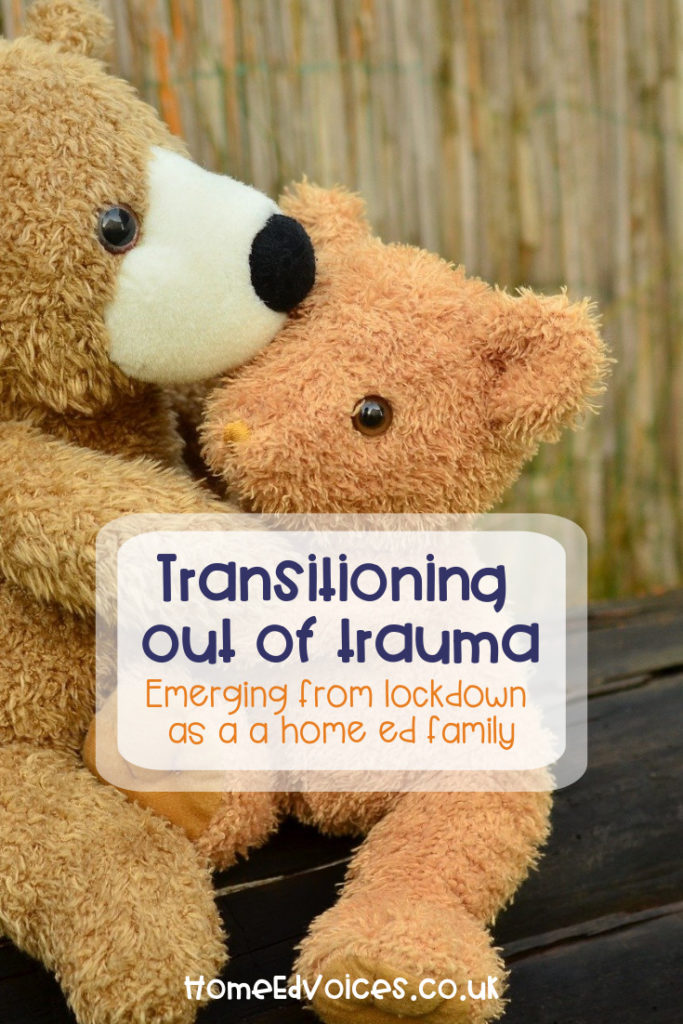Transitioning out of trauma

There is a yawning hole in my bedroom wall where my closet used to be. My husband ripped it out, intending to replace it, as a lockdown project … last May.
I gave our garden beds a layer of compost in early April. I felt energetic then. Not a single seed has been planted though. I. Just. Can’t.
The Covid-19 pandemic disrupted our routines, shook up the structures that helped us navigate life’s myriad decisions, and so depleted our energy and mental resiliency. Our family and friends, those anchors in times of stress, became the threat. And we have slowly become unmoored.
What to expect
We now have this shared collective trauma and I can see it. I see it in the way other parents incessantly email me, the gist of which is always, ‘Please hold my hand, I’ve forgotten how to do this.’ And I recognise that I have asked others to do the same for me. I see it in children who are unable to regulate their emotions over minor irritations and disappointments. I see it in adults’ aggressive impatience. I have watched children’s feelings of excitement over newly formed friendships quickly dissipate into anxiety over how to sustain the relationship with all these rules that confound how they would normally show friendship.
Trauma looks like this. It looks like exhaustion. It looks like always running late. Adults who used to be ‘put together’ will need detailed directions and start and end times, more than once. Yes, they may ask you to map the route for them or stand outside and wave at them so they don’t miss the house or the turn or whatever. It looks like hyperactivity which descends into crippling apathy and back again (so be patient when your friends sound excited for a playdate but then can’t seem to get their act together and show up on time). Making plans may feel harder than it used to because everyone is tired of making decisions. And who knows what mood anyone will be in when you finally get there. And then there will be navigating the re-introduction of children who haven’t played in a while, the soothing of anxieties, the reminding of pro-social behaviours, watching them fall out, helping them come back together. And doing it all again the next time.
Not always, obviously. Sometimes everyone will just be happy to be out and all will be well. Despite how it may sound, I am looking forward to a post-Covid life where I can hug people again. But I accept that lots of hugs, and possibly tears, will be necessary before everything feels like it used to.
Where do we go from here
There is light at the end of the tunnel now, yes. So, why am I still finding it so hard to re-orient myself? I think it is because transitions require attention – a lot is happening and quickly. It is important to attend, to witness, but I don’t feel capable. I am just so tired. I am afraid I am missing something important. I sense it sliding past me, but I can’t grasp it.
I hope that as much as we want to put this pandemic behind us, we do not sweep it under the rug. There is a very real possibility that this collective trauma has shaped the lens through which our children will see the world. And whether that lens is helpful or hurtful may depend on our ability to witness and our ability to make sense of. Processing, discussing, remembering is how trauma heals.
How do we make sense of a pandemic, anyway? As narrative-oriented creatures, it is much easier for us to make sense of war. War has goodies and baddies and eventually, a plot emerges from the chaos. Being locked inside for a year doesn’t sound nearly as dramatic or traumatic as war. But not processing or discussing, not remembering, is how we forgot the last three pandemics of the last 100 years. Had we formed a narrative for any of those pandemics we may have had some decent instructions to follow for this one.
I am interested to know, what is the story you tell your children about Covid-19? Perhaps together we can form a narrative to help us move forward whilst remembering what has come before.